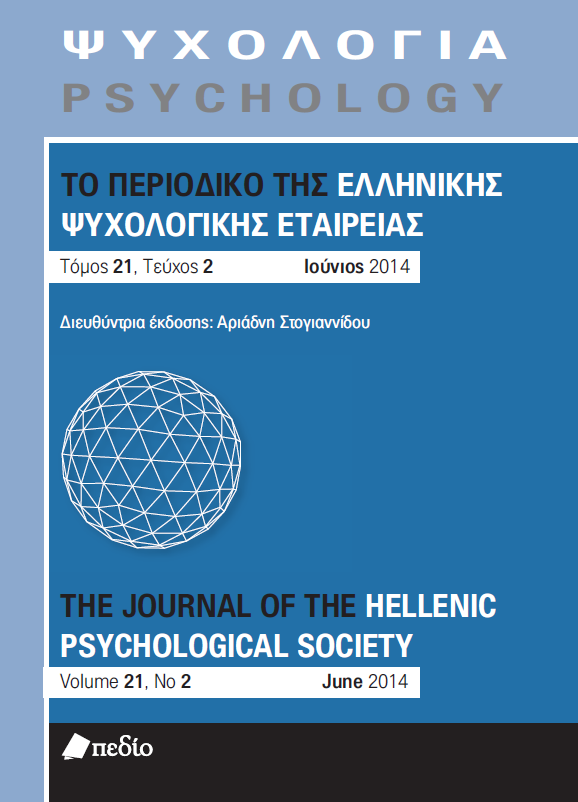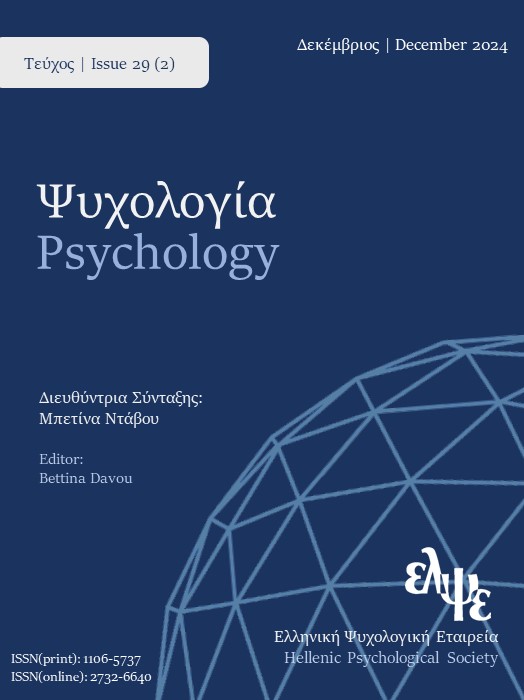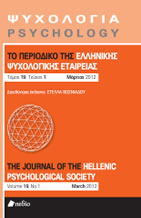Απεικονίσεις «ψυχικής ασθένειας» σε αποφάσεις ελληνικών ποινικών δικαστηρίων: Mια ανάλυση λόγου

Περίληψη
Η παρούσα μελέτη διερευνά τις κατασκευές των ατόμων με διάγνωση «ψυχικής ασθένειας» στις αποφάσεις ελληνικών ποινικών δικαστηρίων. Εφαρμόστηκε η προσέγγιση της φουκωικής ανάλυσης λόγου στις αποφάσεις ελληνικών ποινικών δικαστηρίων που δημοσιεύθηκαν τα έτη 2009 έως 2018, για να εντοπιστούν τα κυρίαρχα αποθέματα λόγου που χρησιμοποιούνται για την κατασκευή της «ψυχικής ασθένειας», καθώς και οι λειτουργίες που επιτελούνται μέσα από τις συγκεκριμένες απεικονίσεις των δραστών και των εγκλημάτων τους στο δικαστικό λόγο. Από την ανάλυση προέκυψαν δύο βασικές κατασκευές. Στην κατασκευή του ακαταλόγιστου «επικίνδυνου ψυχασθενούς», η διασταύρωση του βιοϊατρικού λόγου με το λόγο της επικινδυνότητας σκιαγραφεί το άτομο ως απρόβλεπτο, χωρίς ικανότητα για αυτεπίγνωση, αυτοκαθορισμό και ηθική κρίση. Κατασκευάζοντας την καταλογιστή «εγκληματική προσωπικότητα», η επίδραση της «ψυχικής ασθένειας» στα τετελεσμένα εγκλήματα σχετικοποιείται, καθώς η εγκληματική πράξη ανάγεται στα ψυχολογικά χαρακτηριστικά του ατόμου, που παραβιάζει εσκεμμένα τους κανόνες της κοινωνικά αποδεκτής συμπεριφοράς, παρότι απεικονίζεται ως ικανό για ορθολογικό και ηθικό συλλογισμό. Στα κεντρικά ζητήματα που αναδείχθηκαν συγκαταλέγονται αφενός οι προκατασκευασμένες κατηγοριοποιήσεις των δραστών σε καταλογιστούς ή ακαταλόγιστους, ανάλογα με τον προσδιορισμένο βαθμό αυτενέργειας βάσει ηθικών κριτηρίων, και αφετέρου η επιλεκτική αξιοποίηση του βιοϊατρικού λόγου από το δικαστήριο, που αξιολογεί την ψυχιατρική πραγματογνωμοσύνη άλλοτε ως αντικειμενικό αποδεικτικό στοιχείο και άλλοτε ως αναξιόπιστη γνωμοδότηση.
Λεπτομέρειες άρθρου
- Πώς να δημιουργήσετε Αναφορές
-
Μουσουρούλη Ε., Νεζτεκίδου Δ., & Γεωργάκα Ε. (2024). Απεικονίσεις «ψυχικής ασθένειας» σε αποφάσεις ελληνικών ποινικών δικαστηρίων: Mια ανάλυση λόγου. Ψυχολογία: το περιοδικό της Ελληνικής Ψυχολογικής Εταιρείας, 29(1), 82–99. https://doi.org/10.12681/psy_hps.33157
- Ενότητα
- ΕΜΠΕΙΡΙΚΕΣ ΕΡΓΑΣΙΕΣ

Αυτή η εργασία είναι αδειοδοτημένη υπό το Creative Commons Attribution-ShareAlike 4.0 International License.
Το περιοδικό ΨΥΧΟΛΟΓΙΑ έχει υιοθετήσει μία πολιτική Platinum open-access. Τα έξοδα υποβολής, επεξεργασίας ή δημοσίευσης των εργασιών καλύπτονται από την Ελληνική Ψυχολογική Εταιρεία. Τα πνευματικά δικαιώματα των δημοσιευμένων εργασιών προστατεύονται από την άδεια 'Creative Commons Attribution-ShareAlike 4.0 International'. Οι Συγγραφείς διατηρούν τα Πνευματικά Δικαιώματα και χορηγούν στο περιοδικό το δικαίωμα της πρώτης δημοσίευσης. Η άδεια αυτή επιτρέπει σε τρίτους, να χρησιμοποιούν την εργασία σε οποιαδήποτε μορφή, με την προϋπόθεση της διατήρησης των διατυπώσεων που προβλέπονται στην άδεια σχετικά με την αναφορά στον αρχικό δημιουργό και την αρχική δημοσίευση στο περιοδικό ΨΥΧΟΛΟΓΙΑ. Επιπλέον, κάθε διανομή της εργασίας οφείλει να γίνεται με τους ίδιους όρους διανομής, δηλαδή με την ίδια άδεια Creative Commons.







